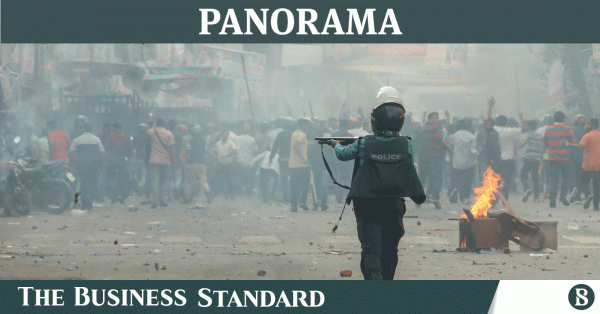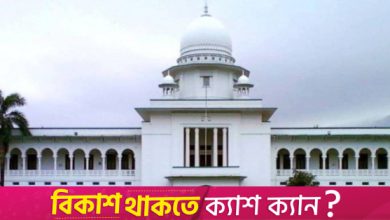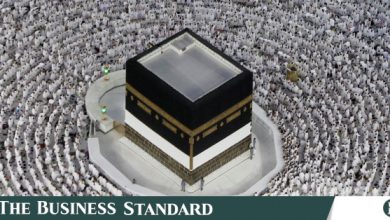How power-hungry Hasina and cohorts made the police a ‘monster’


Excessive and pervasive interference in the functions of the force by the Sheikh Hasina regime gave birth to a monstrous system.
Hasina used the police to crush all sorts of protests by using excessive force. Photo: Rajib Dhar
“>
Hasina used the police to crush all sorts of protests by using excessive force. Photo: Rajib Dhar
The return of police on the streets on 12 August after an unprecedented absence from duty for six consecutive days came as a great relief for people. Their presence on the streets along with students to keep traffic movement in order and ensure safety of people on the streets brought to an end of a usual period of times when people were living in anxiety of being robbed anywhere – on the streets or even at homes.
Information of some incidents of robbery which spread like a wildfire on social media triggered rumours, increasing fear in the public mind. In such a lawless situation it was the public who felt the call of duty. Students took to the streets to ensure smooth movement of traffic. Locals emerged as an alternative to police to guard their community in those sleepless nights. Together they built social resistance which efficiently worked to maintain order in their areas where they live.
This tells the necessity for police, be it public or uniformed police as the founder of modern policing, Sir Robert Peel, also a former British prime minister, set out, “The police are the public, and the public are the police. The police are paid to give full time attention to duties that are incumbent upon every citizen in the interest of community welfare and existence”.
It is an undisputed fact that police are inevitable for a state if it wants to maintain order; as history says the police are as old as civilisation.
Ironically, the branch of the law enforcement agencies such as police, Rab and BGB has been made as the homeadvisor described as a “monster” and did not hesitate to shoot unarmed Abu Sayeed who spread his two hands like wings demonstrating his courage in a non-viol attitude. The following events will also remain as a dark chapter as a record of brutalities such as indiscriminate shooting and killings even from the sky using choppers in July and August with the sole purpose to quell the protests and save the authoritarian regime.
Photo: TBS
“>
Photo: TBS
What went wrong with the police?
Excessive and pervasive interference in the functions of the force by the Sheikh Hasina regime gave birth to a monstrous system. Recruitment of the police members was marred by either bribe or nepotism. Posting and promotion have been made not on the basis of merits, but by the partisan approach.
He who could better serve the government’s partisan interests would get better promotion and posting. He who could serve their partisan interests would enjoy impunity for any wrong doings including indulging in rampant corruption, extra-judicial killings and extortions.
Unchecked rise of Benazir Ahmed, ex-IGP and Rab chief, and some other top officials such as DB Harun who were either forced to resign or faced termination of jobs or went into hiding fearing public wrath after 5 August for their close affiliation with the party in power are the nefarious products of the monstrous system.
It is not that everything was on track in the police administration before, but the political crisis prevailed before the 2014 parliamentary elections election after cancellation of the caretaker government by the Hasina government in 2011 was a turning point.
Hasina was determined to stay in power during the general election in the name of upholding the constitutional provision introduced by her regime in favour of her party in power to manage the election.
Refusing to join the election under Hasina government, the BNP-led opposition parties gradually intensified the street agitation calling Hasina to step down for elections to be held under a non-partisan caretaker government like the previous ones in 1991, 1996 [June], 2001 and 2008 which were largely free, fair and credible.
But Hasina was adamant not to go beyond the newly introduced constitutional provision and used the police to crush the protests by using excessive force, filing numerous cases against opposition leaders and putting them behind the bars through indiscriminate arrest. Opposition programmes very often turned into violence.
Photo: TBS
“>
Photo: TBS
Take an example. Senior leaders of BNP such as MK Anwar, Moudud Ahmed, Mirza Fakhrul Islam Alamgir among others were sued on charges of setting public buses on fire and vandalising the city corporation’s garbage carrying truck. They were also accused of engaging in clashes with police with sticks. It was just the beginning of the making of the monstrous system in the police administration.
The opposition parties announced to resist the 5 January election. The polling day, although voting took place only in 147 constituencies as 153 MPs were already elected unopposed without a single vote being cast, was marred by intense localised violence. It had become the bloodiest election day of Bangladesh.
Hasina returned to power through the stage managed election. After the polls, a number of top police officials then were heard boasting publicly with the claim that they brought Hasina to power, which was factually correct. So, a dark chapter kept unfolding. Many officers both in police and civil administration got the reward with promotion and good posting for their contribution to manage the one-sided election.
Unchecked rise of Benazir Ahmed, ex-IGP and Rab chief, and some other top officials such as DB Harun who were either forced to resign or faced termination of jobs or went into hiding fearing public wrath after 5 August for their close affiliation with the party in power are the nefarious products of the monstrous system.
Five years down the line, things got worse in the 2018 election. Months before the polls, ex-prime minister and BNP chief Khaleda Zia was sentenced in an old corruption case and put behind bars. Yet, the BNP-led opposition joined the polls on a promise of Hasina that the election would be free and fair. Alas! In the dark of night, police guarded the vote rigging by the ruling party men who stuffed ballot boxes the night before the election. As the police became partners in the crime of robbing people’s right to vote, polling officials, mostly teachers of local educational institutions and government offices had nothing to do but to watch the crimes by staying as bystanders.
After returning to power through one-sided election in January 2014, Hasina government opted for zero tolerance to any protest- be it by political parties or any other professional bodies or students. Police were directed to use excessive force to nip the protest in the bud. Dissenting voices were muzzled as the Hasina regime started to apply the article 57 of the Information and Communication Technology (ICT) Act.
Police were empowered by amending the ICT law to make arrests without court warrant if a case was filed under article 57. Abuse of the law was so pervasive that the Hasina government had to follow new tactics. It came up with the digital security act known as DSA after the 2018 election which was basically old wine in a new bottle. The new law retained the provision of section 57 in different ways allowing police to continue to take arbitrary actions to muzzle dissenting voices against the government. Facing widespread criticism in home and abroad by rights bodies, the Hasina regime came up with a new law, Cyber Security Act in 2023, but it retained the same provision just reducing punishment.
By that time the police emerged as a brute force of Hasina to guard her regime to continue.
As the BNP-led opposition again took to the streets calling Hasina to resign for the 2024 election to be held under a non-partisan election time government. The police began clampdown on them from the end of October last year. Numerous arrests were made. Almost the entire top leadership was put behind bars who would later walk out of the jail only after the election was over.
Like previous occasions of political turmoil during Hasina’s government, judges and magistrates in the lower judiciary not only stopped granting bail, it started sentencing opposition men in a hurried trial in old cases many of which were filed before and during the 2013-14 election centric violence.
Photo: TBS
“>
Photo: TBS
As the Hasina government applied the same tactic of her playbook—posting and promotion- to control the judges and magistrates in the lower judiciary, the criminal justice system took the backseat and judicial officials kept following the order of the government instead of applying laws to dispense justice. The criminal justice system collapsed too.
Incidents of extra-judicial killings, enforced disappearance and violation of human rights were rampant triggering outcry by local and international rights bodies. Even a US sanction on some senior Rab officials for extra-judicial killings could not stop the abuse of human rights as Hasina government did not bother with the sanctions.
Take examples of immediate past two police chiefs how the Hasina government patronised the top officials who served partisan interests.
One of the sanctioned officials, Chowdhury Abdullah Al-Mamun, was made police chief who led the police to crackdown on opposition men, manage the January 2024 election and made all out efforts to crush the protests against Hasina regime.
Al-Mamun took over as the IGP on 30 September 2022 by replacing Benazir Ahmed, who was also Rab DG like Mamun and was sanctioned by the USA. He was then appointed on a contractual basis for a period of one and half years from January 12, 2023 to July 11, 2024. Before expiry his tenure, the government on 5 July extended his tenure for another year ending speculation to appoint a new chief.
The government also recognised his “outstanding contribution” to the force by awarding him the President’s Police Medal (PPM) once, and the Bangladesh Police Medal (BPM) twice.
His predecessor Benazir Ahmed who either went into hiding or fled the country after his empire of illegal assets were exposed in the media. It is believed that he fell from grace for reasons not reported by the media. When Benazir was serving as director general of the elite force Rab DG, he was appointed as IGP in April and continued until September 2022.
He was also rewarded by the Hasina government with many awards including PPM and BPM.
The Supreme Court in a verdict in 2013 scrapped section 54 of the CRPC that allowed police to make arbitrary arrests on mere suspects and ordered the judicial magistrates to take actions against every incident of violation of human rights by the law enforcement agencies.
So, nothing could stop Bangladesh, as critics say, from turning into a perfect police state.
A defiant and over confident Hasina ignored mounting diplomatic pressure from the UN, US, EU and other western countries and global human rights bodies, she managed the 2024 elections with the help of the police and cooperation of the lower judiciary and cling to power.
The rest has become history. As her regime failed to contain the situation even after enforcing curfew, shutting down all educational institutions, government offices, factories and internet, engaging her “lathial bahini” Chhatra League men who were labelled by global media as “thugs” and armed cadres and mindless shooting by cops, deaths of more than 500 people in the unprecedented scale of violence, Hasina resigned and fled the country on 5 August for India. Millions of people took to the streets in Dhaka and outside of the capital in jubilation to celebrate the freedom.
Along with the Hasina regime, the law enforcement administration built on the will of the Hasina regime to serve her collapsed too. Police left the streets and stations to avert public wrath. Before and after the fall of Hasina, more than three dozen police were killed in the clashes with protesters, many police stations were set ablaze and vandalised, many arms were looted in an utter lawless situation. Being the oldest institution, police could not survive due to excessive politicisation of the force by the past regime.
After her fall Hasina is now being sued for murder charges and immediate past IGP and Dhaka Metropolitan police chief who were with her regime are also being made accused. Ex-home minister and the law minister are facing the same fate.
Why police reforms go nowhere
To free the police from the politicisation of the partisan government, the past caretaker government-led by Fakhruddin Ahmed moved to reform the force.
It drafted a new law to set up the National Police Commission that would make recommendations regarding appointment of the police chief and posting of other high ranking officials.
The commission as per the draft law would consist of 11 members including four lawmakers – two each from the ruling party and the opposition – and four non-political independent members.
The draft law also proposed the Police Complaints Commission led by a retired judge of the Appellate Division to deal with serious complaints against the law enforcers to make them more accountable to the people by checking crimes within the force.
But Hasina, who returned to power through the 2008 election with the promises to depoliticise the police along with other institutions, had shelved the police reform agenda as it would have curtailed its power to promote and post top police officials as per its will.
With Hasina’s return to power, the culture of interfering in police functions returned after a break of nearly two years of the interim government. Ruling party cadres started interference with the routine police works. They started to decide which cases should be recorded and who should be arrested or released. Later it became an open secret in the police force that political connections, and not merit, would play a big role in the appointment of senior officials, including the police chief. On receiving the signal, the officials became more interested in serving the ruling party than the people. The ultimate outcomes are what were seen after 5 August.
Now the police force itself raised the demand for reforms. Setting up an independent police commission, reform and modernising the existing Police Act and Police Regulations to ensure subordinate officers’ and employees’ dignity and rights are among their key demands.
The home adviser and the newly appointed police chief assured them of addressing the cause of their grievances and frustration and reforming the force. But this seems to be a tall task as around half of the members of the current police force, 1.5 lakh, was appointed during the Hasina regime and recruitment process marred by brine and nepotism.
Last but not the least
No authoritarian ruler rules alone. He needs partners. That’s why he gives undue benefits and privileges to a group at all levels such as police, judiciary, civil administration and legislation, and the business community to build his own team that would only be loyal to him, neither to the constitution nor any other laws.
An analysis of the rule of some authoritarian rulers says a potential dictator first makes an effort to take complete control of the police force to abuse it to crush the opposition against him. No other force is so effective as the police to consolidate power.
So developing a strong and professional police force could be the first antidote to the making of an authoritarian regime.
And the necessity of the police has never been felt so acutely before 5 August. As the force is an inevitable and inalienable part of the state, society, life, economy and everything, why would it not be made better?



